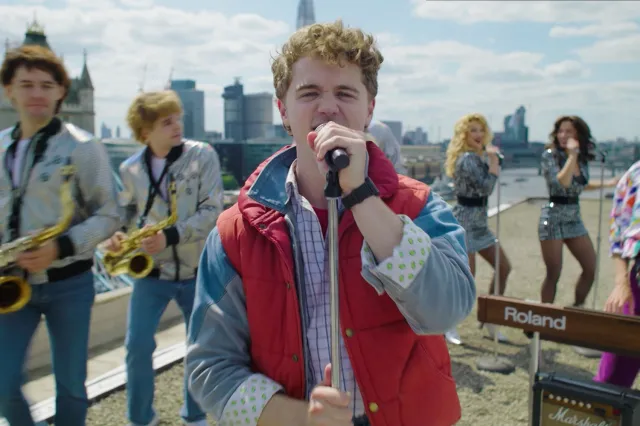Sarah Crompton: My top ten shows of 2016
WhatsOnStage critic Sarah Crompton picks the ten shows she loved over the past year
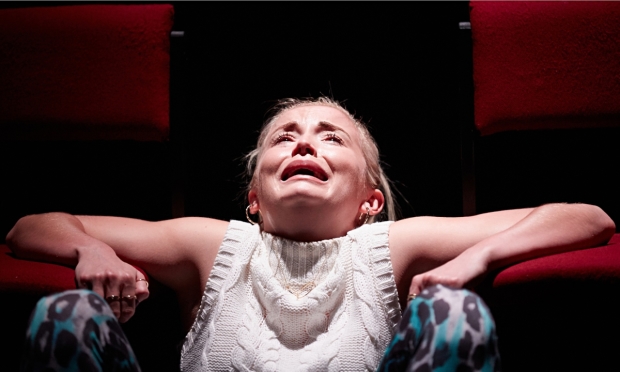
© Mark Douet
Iphigenia in Splott, National Theatre
Gary Owen’s play, originally presented in the Sherman, Cardiff, took a girl you would avoid on the street – drunk, promiscuous, foul-mouthed and ranting – and made her into a tragic heroine, whose sacrifice was as noble and worthy of note as that of any antique Greek. Sophie Melville’s central performance as Effie was heart-rending, insightful and thrilling; utterly real, she took you inside a forgotten life and made you think.
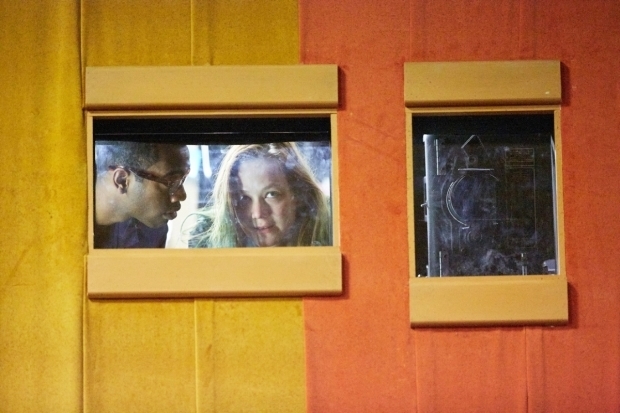
© Mark Douet
The Flick, National Theatre
It’s hard to explain exactly why Annie Baker’s epic drama haunts the imagination so fiercely. Nothing much happens to her three protagonists in an empty, run-down cinema. They chat, bicker about movies, sweep up popcorn, reveal the sad corners of their lives. Yet as time passed their worlds and ours changed, we learnt everything we needed to know about dreams and illusions and the petty compromises of life. A star-making performance from Jaygann Ayeh, just out of drama school, was the bonus feature.
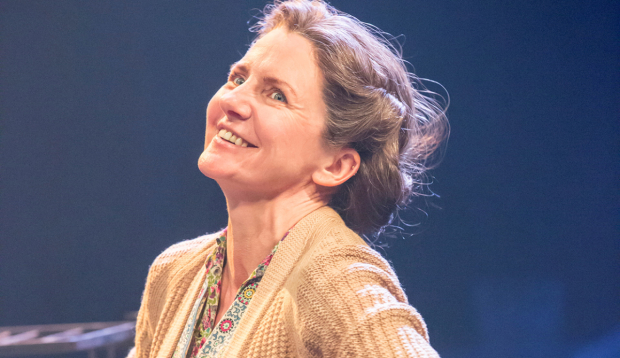
© Johan Persson
Flowers for Mrs Harris, Sheffield Crucible
My favourite new musical of the year was possibly Tim Minchin’s magnificent Groundhog Day at the Old Vic, but I want to take my hat off to Flowers for Mrs Harris because it was such an unlikely, charming project: a story about a middle-aged cleaning lady in post-war Britain, struggling to get by and dreaming of a dress from Dior. Rachel Wagstaff and Richard Taylor’s tuneful, emotion-filled songs, Daniel Evans’ direction and Clare Burt’s performance produced a show of understated humanity that deserves a far wider outing.
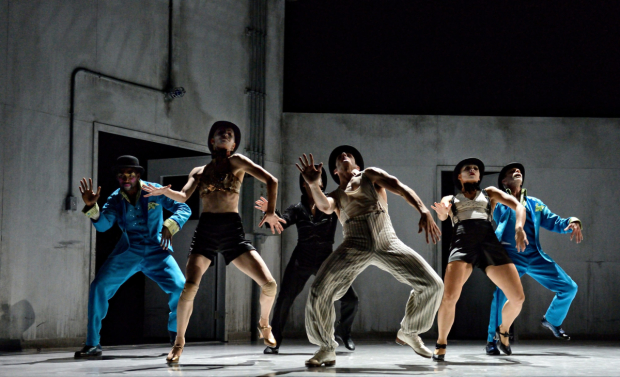
© Michael Slobodian
Betroffenheit, Sadler’s Wells
It’s cheating a bit to include this dance theatre piece by the choreographer Crystal Pite and the theatre maker Jonathon Young in a round-up of the best theatre of the year. But this story of grief and suffering was without doubt the work that most moved me and it did what physical theatre so rarely does: it showed the power of pure movement to convey thought as well as emotion, forging a direct link between the performers on stage and the audience out there in the dark. It was raw, beautiful, unbearable and entirely unique. Like the very best art, it forged something cathartic and universal out of individual experience; don’t miss it when it returns next year.
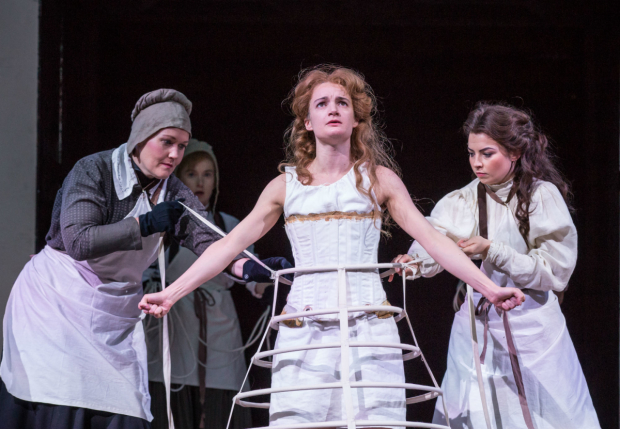
© Marc Brenner
The Taming of the Shrew, Globe
In an amazing year for Shakespeare productions (two cheers in passing for Glenda Jackson‘s astonishing Lear and Simon Russell Beale’s immensely moving Prospero), the one that actually changed my view of a play was Caroline Byrne’s all Irish production of The Taming of the Shrew. It took everything that is most unpalatable and least funny about this savage attack on women’s freedom and played it straight; bleak, dangerous, and yet in the end, tentatively hopeful. Byrne was helped by a searing, raging central performance from Aoife Duffin, who stepped into Katherine’s shoes at the last minute and made them her own. It was a vindication of Emma Rice‘s entire policy at the Globe, radical yet illuminating. What a shame we only have a year left to enjoy her bracing vision.
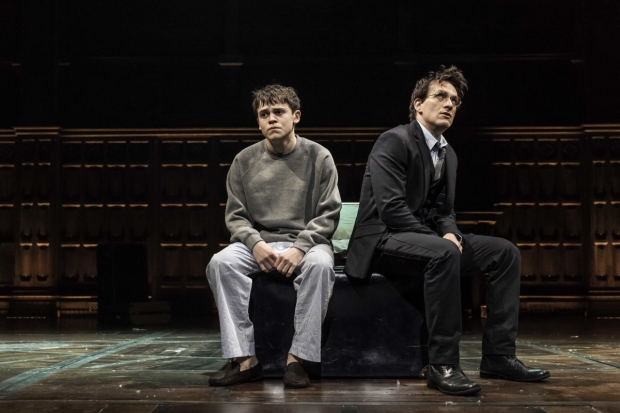
© Manuel Harlan
Harry Potter and the Cursed Child, Palace Theatre
You’d need a heart of stone not to be won over by the theatrical event of the year which also, amazingly, turned out to be one of the productions of the year as well. JK Rowling provided an outline of a story which Jack Thorne turned into two immense, involving plays and director John Tiffany sprinkled the whole thing with theatrical brilliance just as magical as any spell Harry Potter ever cast. Beautifully acted, dazzlingly staged, utterly compelling, it was unforgettable to sit in an audience of people who loved these stories and adored the characters. We all leant forward, waiting to catch every last moment of wonder. Spellbinding.
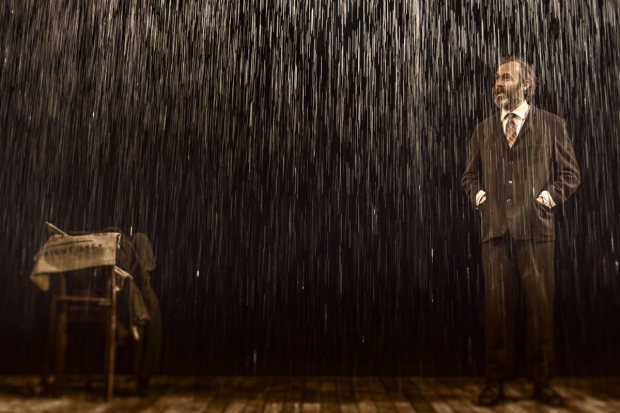
Faith Healer, Donmar Warehouse
Brian Friel’s story of faith and doubt, told from three different points of view, over decades of lost time, is one of my favourite plays. Lyndsey Turner’s production turned it into a haunting dreamscape, still and calm yet broiling with the deepest emotion. Each scene was separated from the other by a curtain of sluicing rain, transcendent yet terrible, rather like the story that unfolds of the marvellous Frank Hardy who can sometimes cure people with his power. Barely moving, seeming to watch a scene playing inside his own head, Stephen Dillane was miraculous as the healer; but his eloquent sadness was matched by Gina McKee as his troubled wife Grace, and Ron Cook as his heartbroken manager.
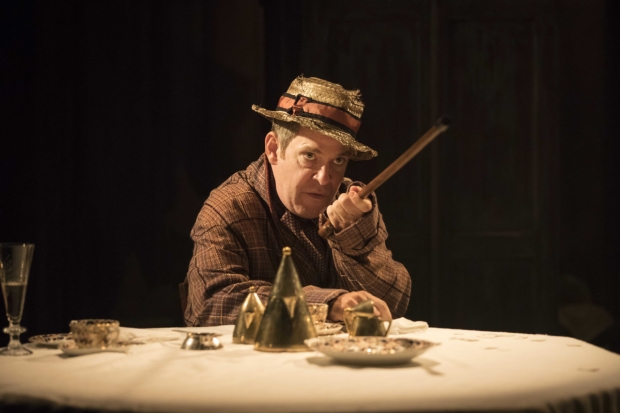
(© )
Travesties, Menier Chocolate Factory
As delirious nights in the theatre go, this revival by Patrick Marber of Tom Stoppard’s 1974 masterpiece will take some beating. The sheer wit and inventiveness of the language is matched by the depth of the thought in a thrilling mix of fact and fiction that collides James Joyce with The Importance of Being Earnest, Karl Marx and Dada. It is invigoratingly clever, a dazzling defence of the value of art at a time when such a clarion call feels more necessary than ever. It is also just flat out funny, a joy and the performances were as scintillating as the direction with Tom Hollander and Clare Foster outstanding. It also transfers in the new year. Don’t miss it; you may have to wait 25 years for the next revival.
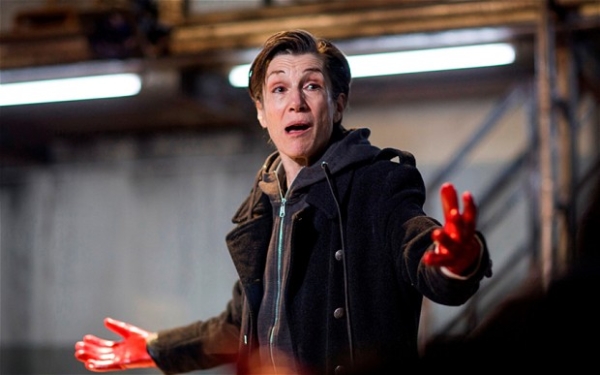
© Helen Maybanks
Donmar Shakespeare Trilogy, King's Cross Theatre
There was so much to love about these three plays – Julius Caesar, Henry IV, and The Tempest – presented by an all-female cast as if for performance in a women’s prison that they made me forget I was sitting on the most bum-numbingly uncomfortable seat on which I have watched theatre all year. What I most admired was the way director Phyllida Lloyd had coaxed such apparently effortless performances from all her cast, who performed Shakespeare with such insight and understanding, bringing a radical interpretation to easy life, and loudly asserting once and for all the idea that Shakespeare is for everyone. To watch. And to perform.
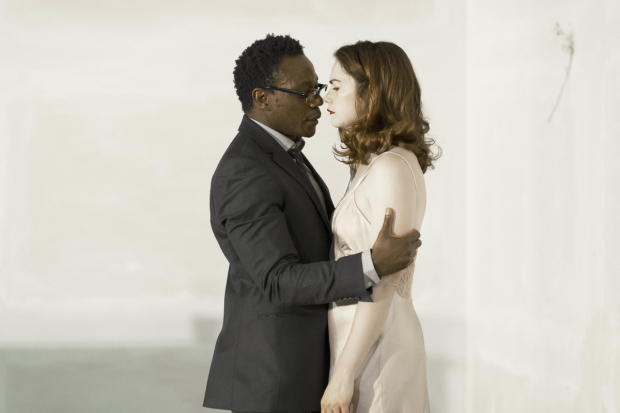
© Jan Versweyveld
Hedda Gabler, National Theatre
A late entry to the list, but I couldn’t leave it off. I’ve never seen a Hedda Gabler as haunting and chillingly precise as Ivo van Hove‘s version, in a new translation by Patrick Marber, and starring Ruth Wilson as a desolate Hedda, so at odds with her own life that she masks her despair with destruction. When I look back on it, I find I think about the choreography within Jan Versweyveld’s vast, empty space – the way you are always conscious of the distance between people, the way their bodies seem dwarfed and dislocated. And the way the crushed flowers on stage fill the auditorium with, in Hedda’s words, "the sickly stench of death. Flowers after the ball."












